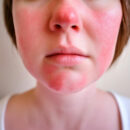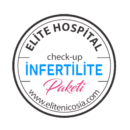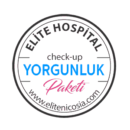How Are Postpartum Depressive Disorders Treated?

Postpartum and Mental Health
Depression is more common in women and occurs most frequently in the 18-45 age range, including pregnancy, birth and the postpartum period.
Postpartum Sadness
Doğum sonrası hüzün; aynı zamanda annelik hüznü, bebek hüznü olarak da isimlendirilir. Çoğunlukla doğumdan sonra 10-15 gün içerisinde gözlenen psikolojik ve psikosomatik belirtilerdir. Bir hastalık değildir. Kültürel ve bireysel etmenler, toplumlar arası yaygınlığını etkilemektedir. Batı toplumlarında daha fazla gözlenmektedir. Kadınların %40-85’inde gözlenen bir durumdur.
Risk factors
Family history of depression, poor social support, stressful life events (immigration, conflicts with spouse, low self-esteem), hormonal changes, birth and postpartum events (cesarean delivery and low birth weight), previous depression, previous pregnancy and/or It is associated with being diagnosed with depression in the postpartum period. However, the risk of postpartum blues has been observed to be approximately four times higher in single mothers and women who smoke.
Postpartum blues; It is a temporary condition observed in the first 2 weeks after birth. Although anxiety, irritability, impaired attention and concentration, restlessness, and increased reactivity are observed, it does not affect social and professional functionality. Crying attacks, sadness, irritability, fatigue, and sleep disorders are observed. Emotional variability that begins and ends suddenly is observed.
It develops in the first few days after birth, usually in the first 4-5 days, and usually subsides within the first two weeks when hormones return to normal levels. For many women, it is a temporary condition; It resolves spontaneously, without requiring pharmacological treatment.
Although postpartum sadness is more common than postpartum depression, it is milder. In women with previous mood disorders, childbirth blues may be a precursor to depression; For this reason, ensuring the mother's sleep routine, increasing social support, and relaxation exercises are of great importance during this process. While it is usually expected to regress spontaneously within two weeks; Women whose complaints do not subside within the first weeks after birth should be monitored for the severity of symptoms.
Depressive Disorders in the Postpartum Period
Doğum sonrası depresyon sıklığı %10-15 gözlenmekle birlikte; bölgelere ve döneme göre farklılıklar gösterebilmektedir.
Risk factors
Gebelik dönemi depresyonu, doğum sonrası depresyon için en önemli öngörücü olarak bilinmektedir. Tedavi edilmemiş depresyonun, %92 oranında doğum sonrası depresyona yol açtığı gözlenmiştir.
Poor marital relationship, domestic violence, poor social support, being a single mother, stressful life events, low self-esteem, family history of depression, bad experiences with previous births, history of anxiety and depression in previous births and postpartum, unwanted or unplanned pregnancy, It is known that it is associated with early or late pregnancy, smoking or substance use during pregnancy, history of chronic disease in the pregnant woman, multiple pregnancy, infertility, assisted reproductive techniques, birth by cesarean section, baby loss, low birth weight in the baby, and serious health problems of the baby.
Symptoms;
Unhappiness, feeling worthless, not enjoying life, anxiety, fear, feeling guilty, crying attacks, decrease or increase in movements, sleep disorders, memory impairment, decrease in attention and concentration, emotional instability, anger, hopelessness, feeling inadequate, death and suicidal thoughts, decreased desire and motivation, anxiety about the baby, or lack of interest in the baby.
Genellikle doğumdan sonra ilk 6 hafta içinde sinsice başlar, nadiren başlangıç olarak doğum sonrası 1-2 yıla kadar uzayabilmekte, haftalar içinde yavaş gelişme göstermektedir. Tek atakta %50 tekrarlama riski varken, birden çok atak geçirenlerde %100’e yakın tekrarlama riski mevcuttur.
Treatment Approach
The postpartum period is a period when women avoid using medications due to side effects that may occur as a result of breastfeeding and medication use.
Psychosocial treatment interventions, medication and additional somatic treatments are possible in postpartum depression.
In cases of mild depression, psychotherapy and increased social support may first be considered. In cases of moderate to severe depression, when social support cannot be provided and psychotherapy cannot be provided; The patient should be closely monitored and drug therapy should be adjusted. If an antidepressant medication is to be started, the antidepressant that is reported to be at least excreted in milk is preferred.
During both pregnancy and the postpartum period, attention should be paid to sleep patterns, and attention should be paid to night sleep; Assistance should be provided to care for the baby. Supportive approaches such as increasing partner support and increasing social support are important.
Dr. Gözde Ataöv
Psychiatrist and Psychotherapist
Contact Us For Appointment:
Telephone line: 0392 444 3548 (ELIT)
Contact Form: https://www.elitenicosia.com/iletisim/















